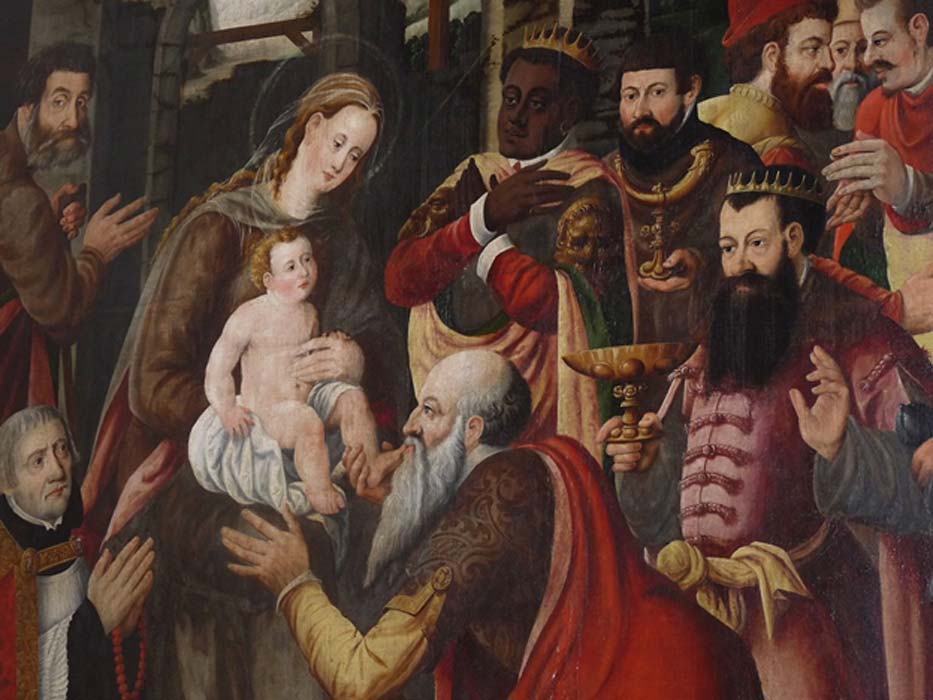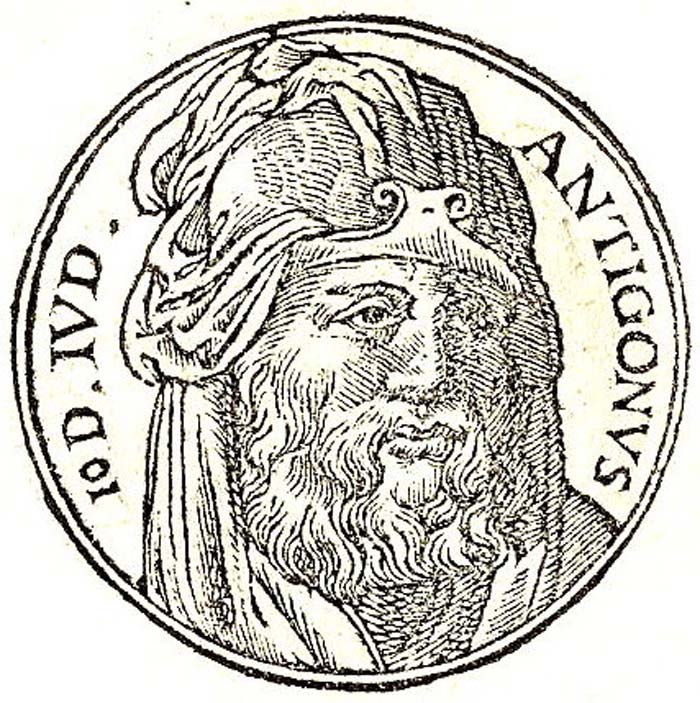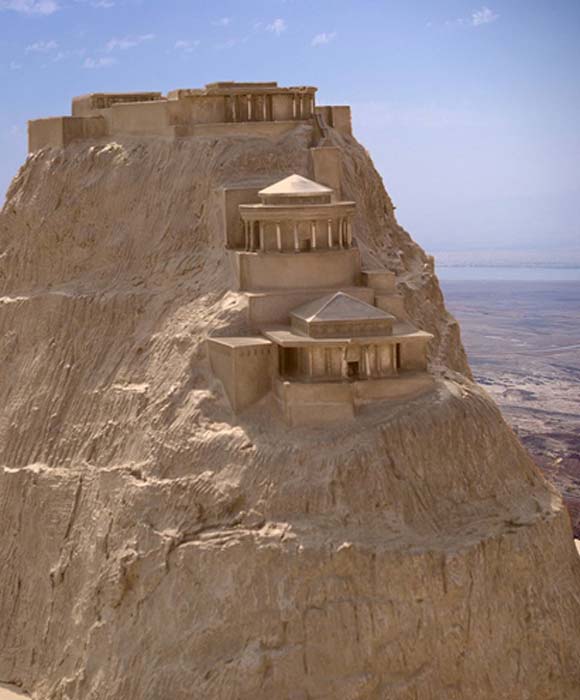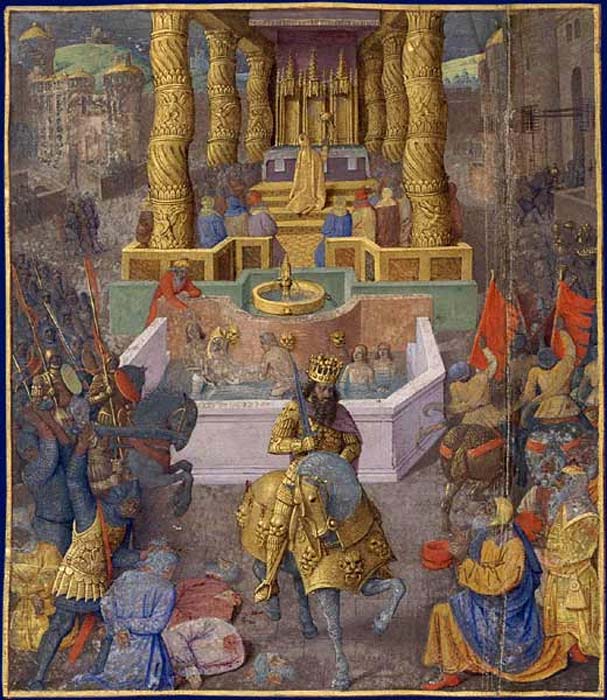
Political Landscape of the Nativity of Jesus
To paint the canvas around the time of the birth of Jesus, one needs to examine the unfolding political landscape of Judea a generation before Jesus’ birth. By 40 BC, Judea was under Parthian rule and Antigonus II Mattathias (of Hasmonean descent) was the designated king of Judea. He was pro-Parthian and anti-Roman. Antigonus had to ‘convince’ the Parthians that he was the right man for the job by paying them large sums of gold and 500 female slaves. In exchange he attained the kingdom of Judea and 500 Parthian soldiers on loan to defend his kingdom. Herod, the Roman appointed military governor of Galilee at that time, had fled to Rome from his stronghold at Masada, when the Parthians conquered Jerusalem, but by 40 BC, Rome nominated Herod as king of Judea and dispatched him back. The problem was, there was already a king on the throne in Judea – Antigonus II – the Parthian favorite.

Antigonus II Mattathias was the son of King Aristobulus II of Judea. (Public Domain)
Ventidius Roman Conqueror
To solve this predicament, Roman general Publius Ventidius Bassus was dispatched to Judea to rid the province of any remaining Parthians as well as the anti-Roman King Antigonus and restore Herod to the throne. However, Ventidius had other plans. Instead, he bypassed Herod’s family who were besieged by the troops of Antigonus at Masada and proceeded straight to Jerusalem, where he camped outside the walls. Ventidius was conducting a psychological warfare by leading Antigonus to believe that he was going to take Jerusalem. Ventidius applied fear and trickery, promising not to attack Jerusalem in exchange for vast amounts of wealth from the king. Jerusalem was being ransomed and Antigonus capitulated to the demands of Ventidius. When Ventidius’ coffers were filled, he took the bulk of his forces and headed back to Syria to fight the Parthians. He beat them at the Battle of the Cilician Gates and the Amanus Pass in 39 BC.

Model of the northern palace of Masada (Berthold Werner / Public Domain)
Ventidius had left commander Poppaedius Silo in charge of Judea to deal with the Jewish problem and to await the arrival of Herod. However, Antigonus attempted to bribe Silo multiple times in an attempt to buy time and in the hope that the Parthians would come to his assistance, while he kept the Romans at bay. However, this did not happen, because the Parthians were being slain by Ventidius.
Herod Claiming His Kingdom
Herod landed in Judea, with a small army of forces, but his ranks began to swell with supporters. Herod with the aid of Silo, had to make a decision where to attack first. Faced with corruption among his Roman officers, mutinous Roman troops and Antigonus' guerrillas, Herod decided not to capture Jerusalem, where Antigonus was embedded. Herod turned to Joppa and Silo abandoned his siege of Jerusalem to aid Herod. When Silo turned away from Jerusalem the Jews decided to attack. Herod caught wind of the attack and sent a small force to aid Silo. They defeated the supporters of Antigonus.
Once Joppa had been captured, Herod returned to Masada to relieve his besieged family. Finally, Herod could focus on Jerusalem. While Herod prepared for the capture of Jerusalem, Mark Antony sent Ventidius’ replacement, Gaius Sosius, the governor of Syria and Cilicia, to assist Herod. Herod and Sosius captured Jerusalem and Antigonus surrendered to Sosius, who then sent him to Rome to Mark Antony to be displayed as captive in a triumphal procession. Herod feared that once Antigonus was in Rome, he might be able to obtain the ear of the senate to hear his cause, which could shift the balance of power back to Antigonus. In order to prevent Antigonus’ claim to the Judean throne, Herod paid Mark Antony a great deal of money to have him executed. Antony accepted the money and Antigonus was beheaded in Antioch, the first time the Romans had executed a subjugated king. Some sources claim Antigonus was crucified, not beheaded.






